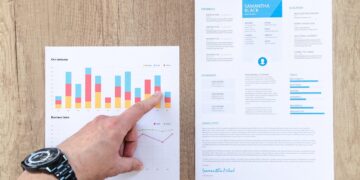Mastering Your Finances: A Simple Budget Plan for Beginners
Navigating the realm of personal finance can be daunting for beginners, especially when trying to establish a sound budget plan. Effective budgeting is essential for achieving financial stability and paving the way for a secure future. This comprehensive guide offers an easy-to-follow budgeting strategy tailored for novices, ensuring you learn the basic principles of financial management to sustain and grow your wealth.
Understanding the Importance of a Budget
A budget is more than just an arrangement of numbers; it’s a crucial tool that helps manage your income and expenses systematically. Creating and sticking to a budget can help prevent overspending, reduce debts, and set aside savings for future goals like buying a home, retirement, or funding an education. The practice of budgeting instills discipline and awareness regarding your financial habits, making you more inclined to make informed spending decisions.
Start With Setting Your Financial Goals
Before diving into numbers, it’s vital to define what you aim to achieve through budgeting. Are you looking to clear debt, save for a down payment on a property, or perhaps improve your spending habits? Clear goals provide direction and a framework which your budget will support. Set both short-term and long-term goals to maintain a balanced focus on your immediate and future financial health.
Steps to Create a Beginner’s Budget
1. Calculate Your Total Income
To begin, you need to determine your total monthly income. Include all sources such as salaries, bonuses, freelance work, and other incomes. Having a clear understanding of what you earn is the foundation of how you will allocate your finances.
2. List Your Expenses
Next, write down all your monthly expenses. Start with fixed expenses such as rent, mortgage, utilities, and car payments. Then, list your variable expenses—these are costs that can vary each month such as groceries, dining out, and entertainment. Don’t forget to consider annual expenses like insurance premiums or membership fees; divide these by 12 to include in your monthly planning.
3. Allocate Funds Appropriately
After listing your income and expenses, subtract the expenses from the income to see what is left over. The goal is to have your income higher than your expenses, which indicates room for savings. If expenses exceed income, it will require adjusting your spending habits.
4. Implement the 50/30/20 Rule for Simplicity
For an easy approach to budgeting, consider the 50/30/20 rule:
- 50% of your income should go to essentials like rent and food.
- 30% should be allocated for wants, such as dining out or hobbies.
- 20% should be saved or used to pay off debt.
This rule provides a balanced way to divide your income and manage your finances effectively.
Monitoring and Adjusting Your Budget
Your first budget may not be perfect, and that’s okay. The key is to monitor your spending over the first few months and adjust accordingly. Keep track of all expenditures, review them at the end of each month, and see where you can cut back if necessary. There might be unplanned expenses that pop up, so be flexible and adjust your budget as life happens.
Utilizing Tools and Resources
Many online tools and budgeting apps can help simplify the process. These tools can offer insights, reminders, and even automate some aspects of your budgeting practice. Popular apps like Mint or You Need a Budget (YNAB) help categorize your spending and track your progress towards your financial goals.
Frequently Asked Questions on Budgeting
What if I have irregular income?
For those with irregular incomes, it’s crucial to base your budget on your lowest-earning month. Save any extra income during good months to cover shortages during leaner times.
How frequently should I review my budget?
It’s advisable to review and adjust your budget monthly. This helps accommodate changes in income and expenses and keeps you on track with your financial goals.
Conclusion: Empower Your Financial Future
Mastering a budget doesn’t happen overnight, but developing the skill can significantly enhance your financial health. By following these foundational principles and adjusting as your financial situation changes, you can maintain control over your finances and reach your economic goals. The key is patience, persistence, and a willingness to adapt strategies as you learn what works best for your economic situation.
Remember, a well-planned budget is your first step towards financial mastery, and with these tips, you can effectively navigate your financial journey even as a beginner.



























































